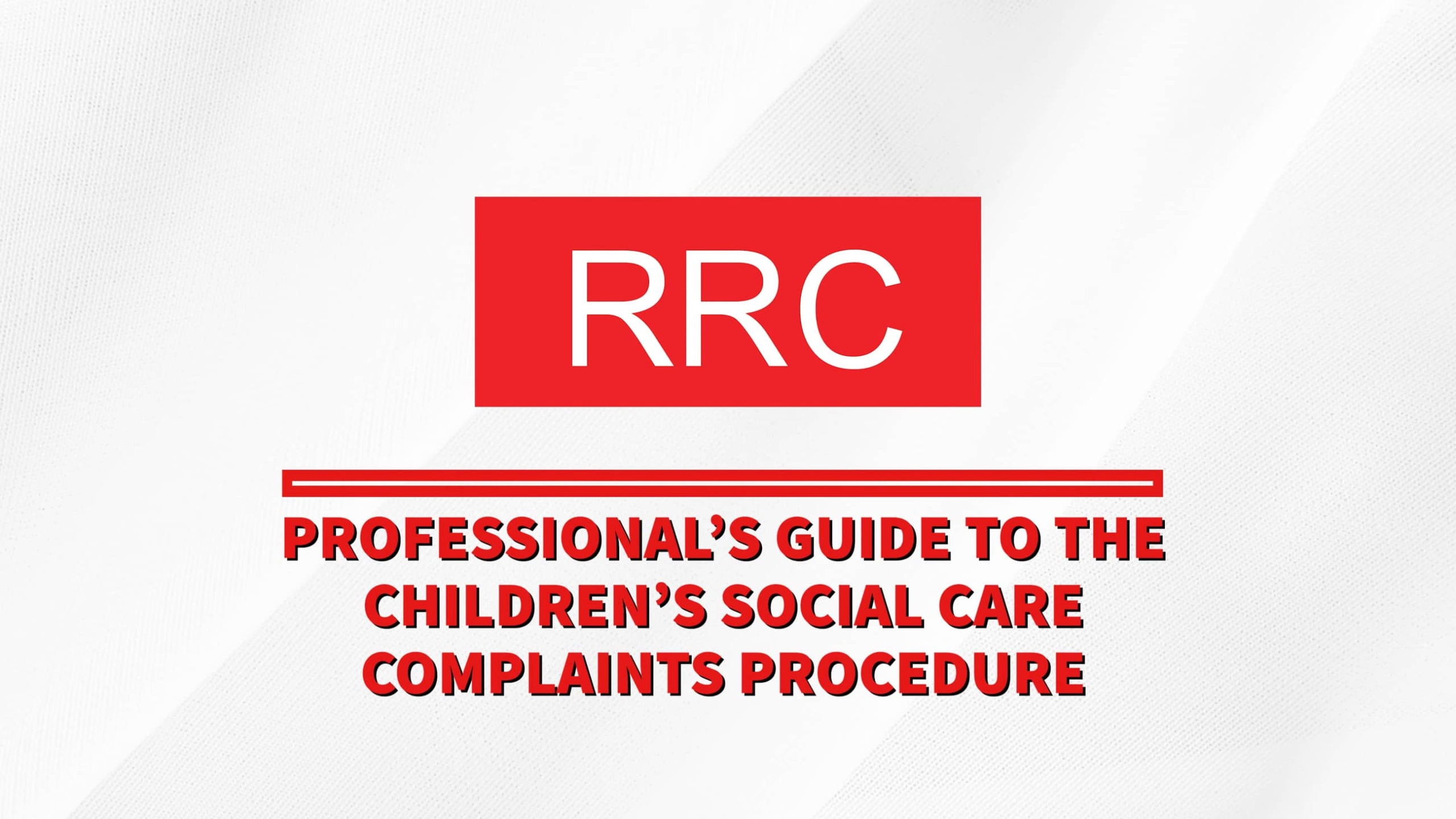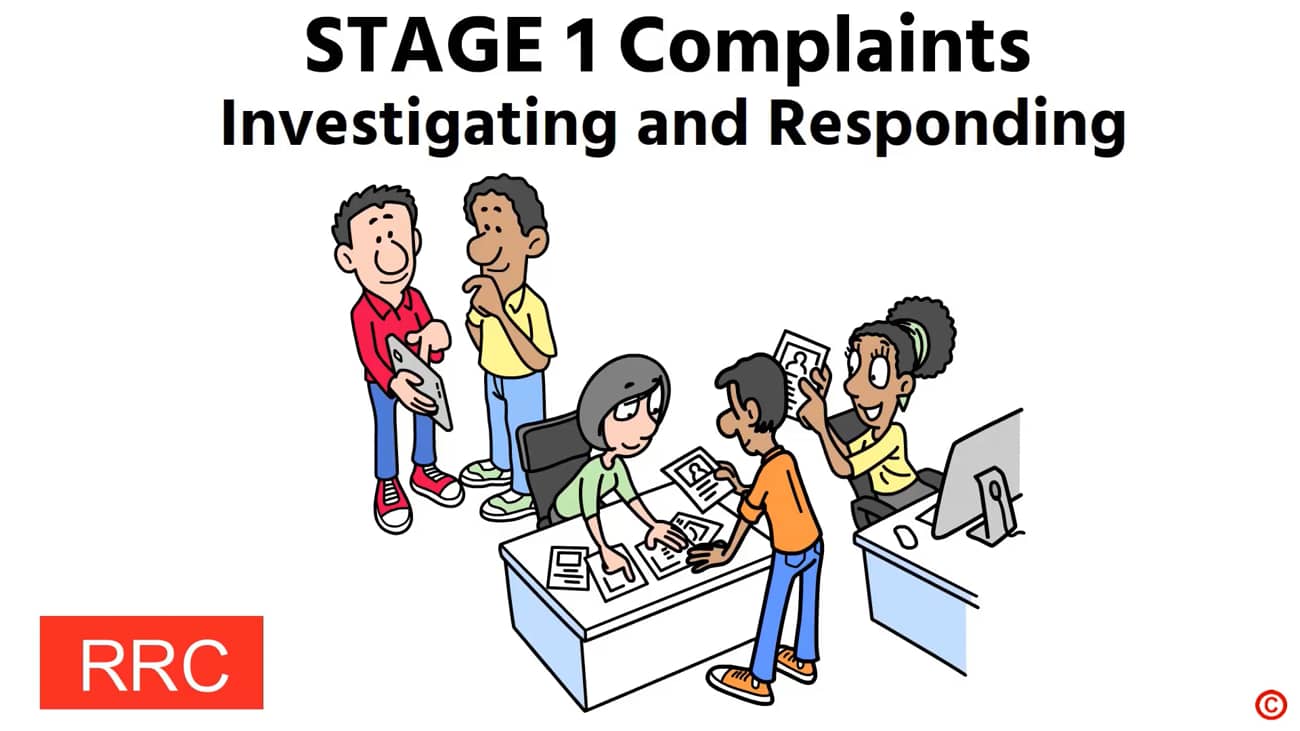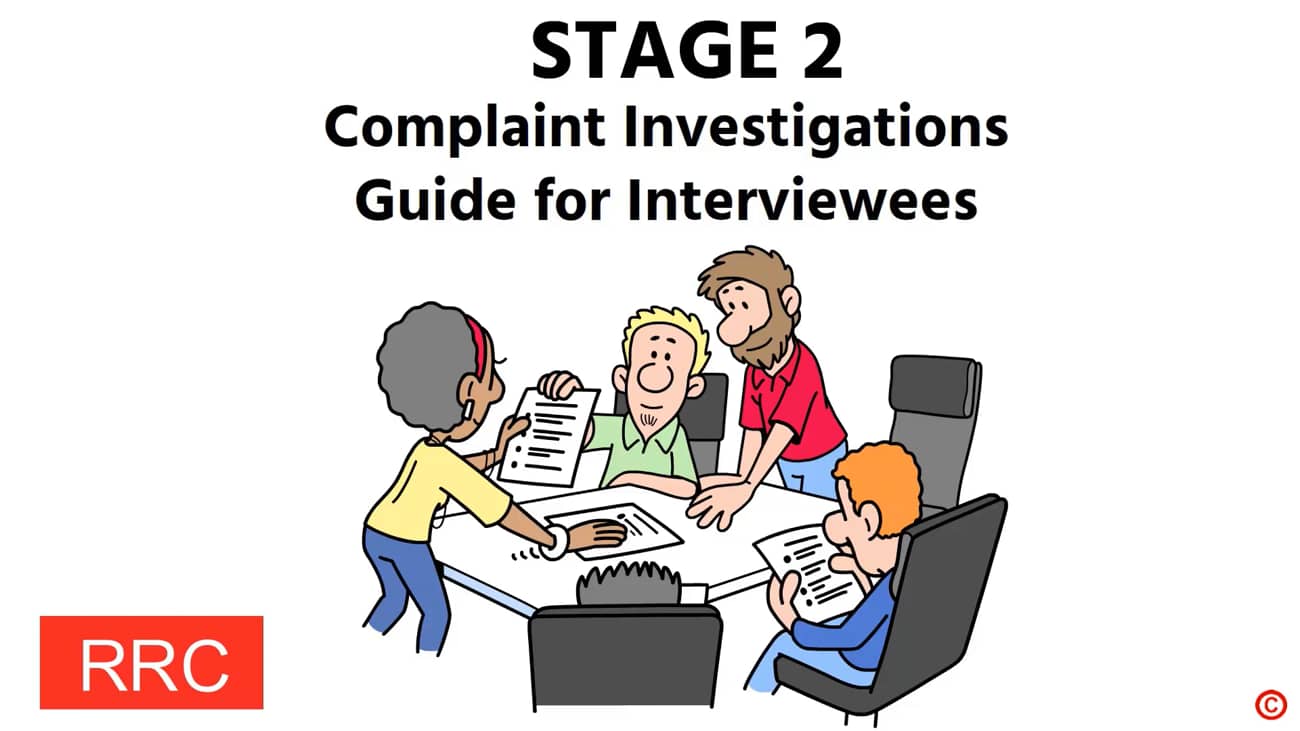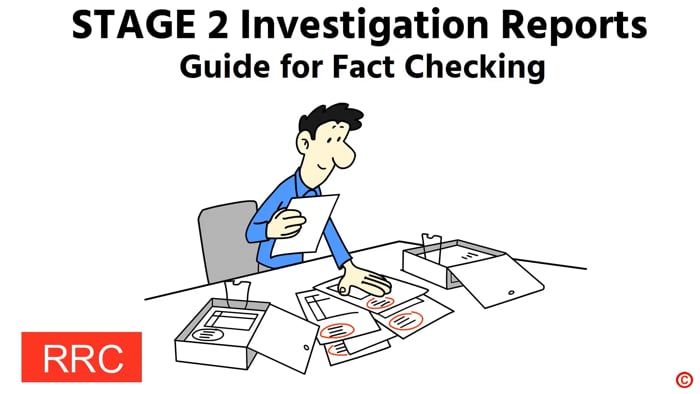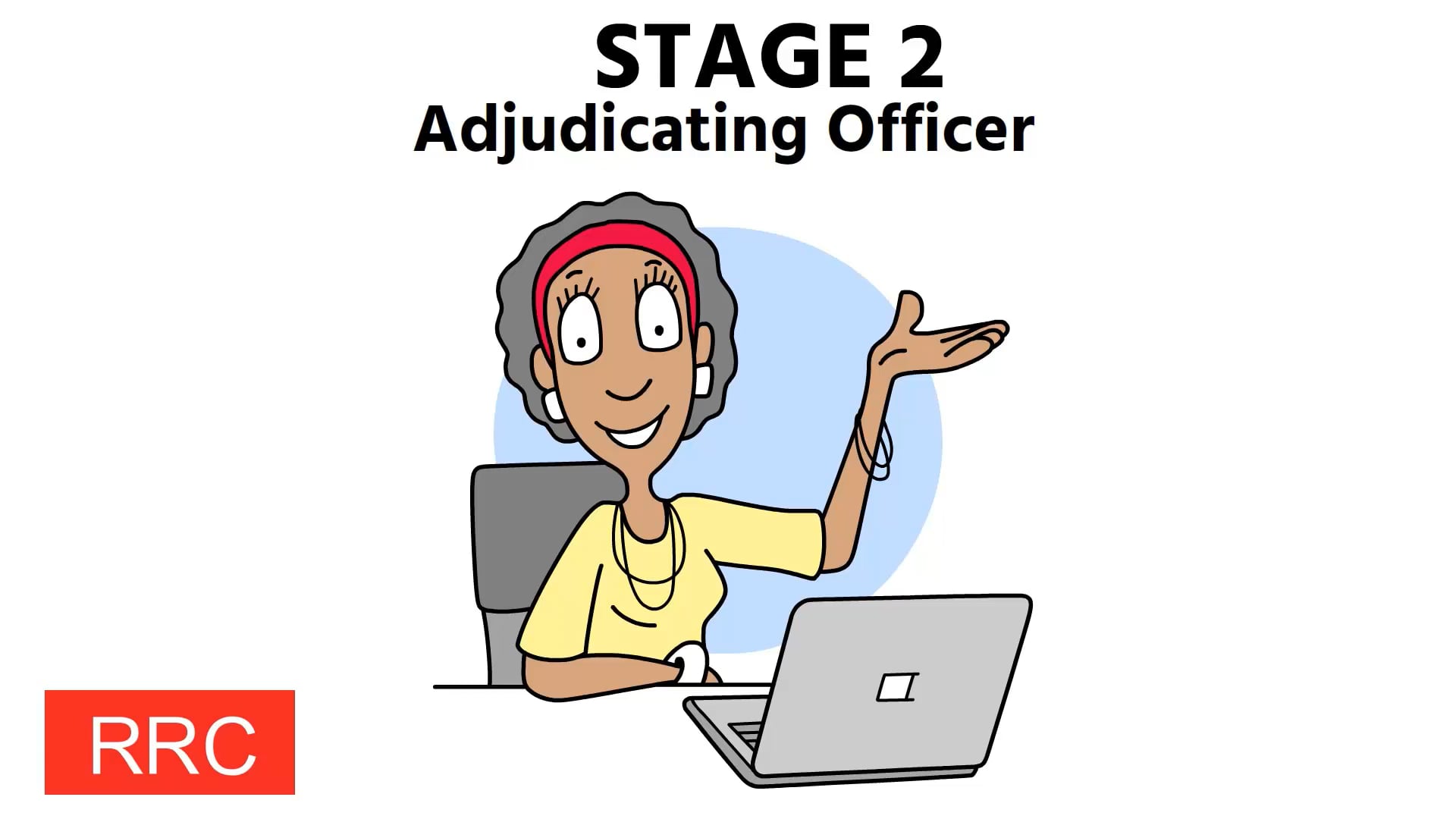Guidance for Professionals
Children’s Social Care Complaints
On this page, you will find information videos for Professionals about the Children’s Social Care Complaints Procedure.
If you are a Complainant, please see our information videos for Complainants.
FAQs about the Children’s Complaints Procedure
Welcome to RRC’s Frequently Asked Questions (FAQs) for Professionals involved in complaints about children’s social care. Here are some commonly asked questions about complaint handling, investigations, and responding to complainants.
Stage 1
Stage 2
Your role is to assist the Investigating Officer and Independent Person with their enquiries. This could involve gathering documents, agreeing to be interviewed to discuss your role and/or decision-making, helping to arrange interviews, or supporting the overall process to ensure a smooth investigation.
No. Complaint investigations are not part of any HR process. They are an opportunity to understand what happened, why and to put right anything that went wrong. They should be approached with a restorative and reflective mindset. These are opportunities where learning can take place.
Yes, of course. Please speak to your Complaints Manager, who can advise you further about this.
The investigation should ideally be completed and the response sent within 25 working days. However, it can be extended to a maximum of 65 working days if the complaint is complex or involves multiple agencies.
The Investigating Officer has the authority to request information or documents from any person or body to help with the investigation. You should support them in obtaining these, keeping in mind rules about confidentiality and data protection.
Yes, the Investigating Officer should have access to all relevant records and staff. The Independent Person should also see the same relevant files and documents as the Investigating Officer. These should be released in accordance with normal confidentiality guidelines. The Complaints Manager will be able to advise you on the methods used to share confidential information.
If multiple agencies are involved, the Complaints Manager will usually assist the Investigating Officer and Independent Person in planning and coordinating their enquiries. Good communication and coordination between all involved bodies are essential and in line with statutory guidance.
The Investigating Officer writes a report with findings, conclusions, and outcomes for each point of complaint (e.g., “upheld” or “not upheld”). They also make recommendations for how to fix any injustice. The report should be clear, simple, and avoid jargon. You will have an opportunity to check any facts you provided to them that they use in their report.
The Independent Person will read the Investigating Officer’s final report and provide their own report. They comment on whether the investigation was impartial and thorough, if everyone could share their views, and if the IO’s report is accurate. They can also make their own recommendations.
Reports are usually in draft form until the adjudication is completed. A senior manager, called the Adjudicating Officer, reviews all the reports and decides on the local authority’s response, the outcome for each complaint point, and any actions to be taken, along with timescales. This final response is then sent to the complainant together with a copy of the Independent Investigator and Independent Person’s finalised report.
Providing your view on the findings is not necessary. That is the role of the Adjudicating Officer. You only need to fact check the content within the report, for example, if the IO has noted a meeting took place on X date, when it actually took place on Y. The facts you check will likely relate to information you provided to the investigation.
While the Adjudicating Officer should normally be a senior manager, reporting to the Director responsible for Children’s Services, the guidance doesn’t explicitly state that you must have a social care background. Your main responsibility is to carefully review all the reports, including the Investigating Officer’s findings and recommendations, and the Independent Person’s report. You’ll then identify the local authority’s final response, make the decision on each point of complaint, and determine any actions that need to be taken, along with timelines. It’s about ensuring a fair and thorough process, and making sure that the local authority learns and improves from the complaint.
While it isn’t mandated, it is good practice to meet with the Investigating Officer and Independent Person to discuss their reports before completing the adjudication response. Any concerns you have about their reports can be discussed with them before they are finalised.
Stage 3
The main purpose of a Review Panel is to listen to everyone involved, consider if the Stage 2 investigation was thorough, and try to find a resolution for the complainant. It’s about getting to the bottom of the complaint and suggesting practical ways to put things right and improve services.A Stage 3 Review Panel is NOT a reinvestigation.
The complainant has the right to attend, often with a representative. The Investigating Officer and Independent Person from Stage 2 are usually invited. A local authority representative (often the Adjudicating Officer), the Panel Chair, and two other independent panel members will also be present, along with administrative support.
The Panel consists of three independent people, one of whom will act as the Chair. They should not be staff or members of the Local Authority. The Independent Person from the Stage 2 investigation cannot be on the Panel.
The Panel must be held within 30 working days of the complainant asking for a review. After the Panel meets, it needs to produce its written report within 5 working days. Then, the Local Authority has 15 working days to send its response to the Panel’s recommendations.
You should receive “Panel papers” at least 10 working days before the meeting. These will include the Stage 2 investigation report, the Local Authority’s decision (adjudication), and any other relevant information regarding the complaint, including the reasons for requesting Stage 3. If you are the Local Authority representative, you should prepare a presentation of the authority’s position.
The Panel aims to be informal but professional. You’ll have an opportunity to present your side of the story and answer questions from the Panel members. The focus is on understanding the complaint and finding solutions, not on cross-examining anyone. The Chair will guide the process.
Yes, the complainant has the right to be accompanied by another person, and that person can speak on their behalf.
The Panel can make recommendations to the Local Authority on how to resolve the complaint, including practical remedies and suggestions for service improvements. This could include financial redress or other actions.
A senior manager (the relevant Director) will review the Panel’s recommendations and decide how the Local Authority will respond. They will consult with the Independent Person at Stage 2. The Director’s response will then be sent to the complainant, along with the Panel’s report.
If the Director decides to deviate from the Panel’s recommendations, they must clearly explain their reasoning in the response sent to the complainant.
The final stage of the complaint process is for the complainant to approach the Local Government and Social Care Ombudsman. The Complaints Manager will provide their details at the same time the final response from the Local Authority is sent.
Guidance & Regulations for Professionals
For professionals handling complaints, the following links provide statutory guidance, regulations, and key resources to support best practice and compliance.
For general advice about who to contact for Council (Social Care), Education, Housing or Health complaints please contact us.
